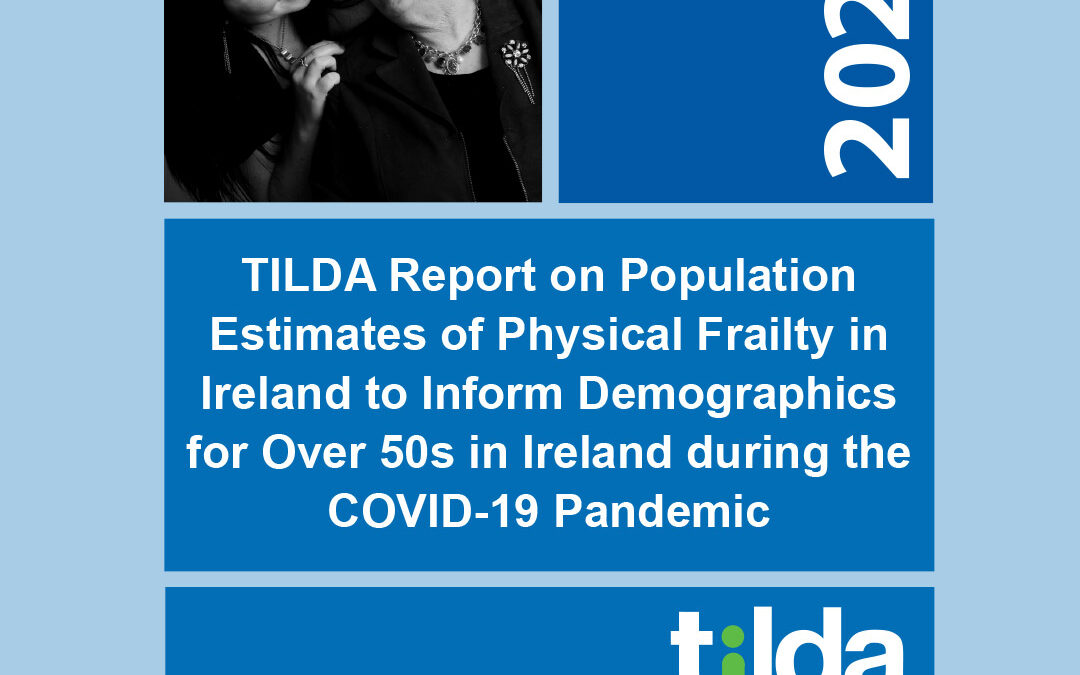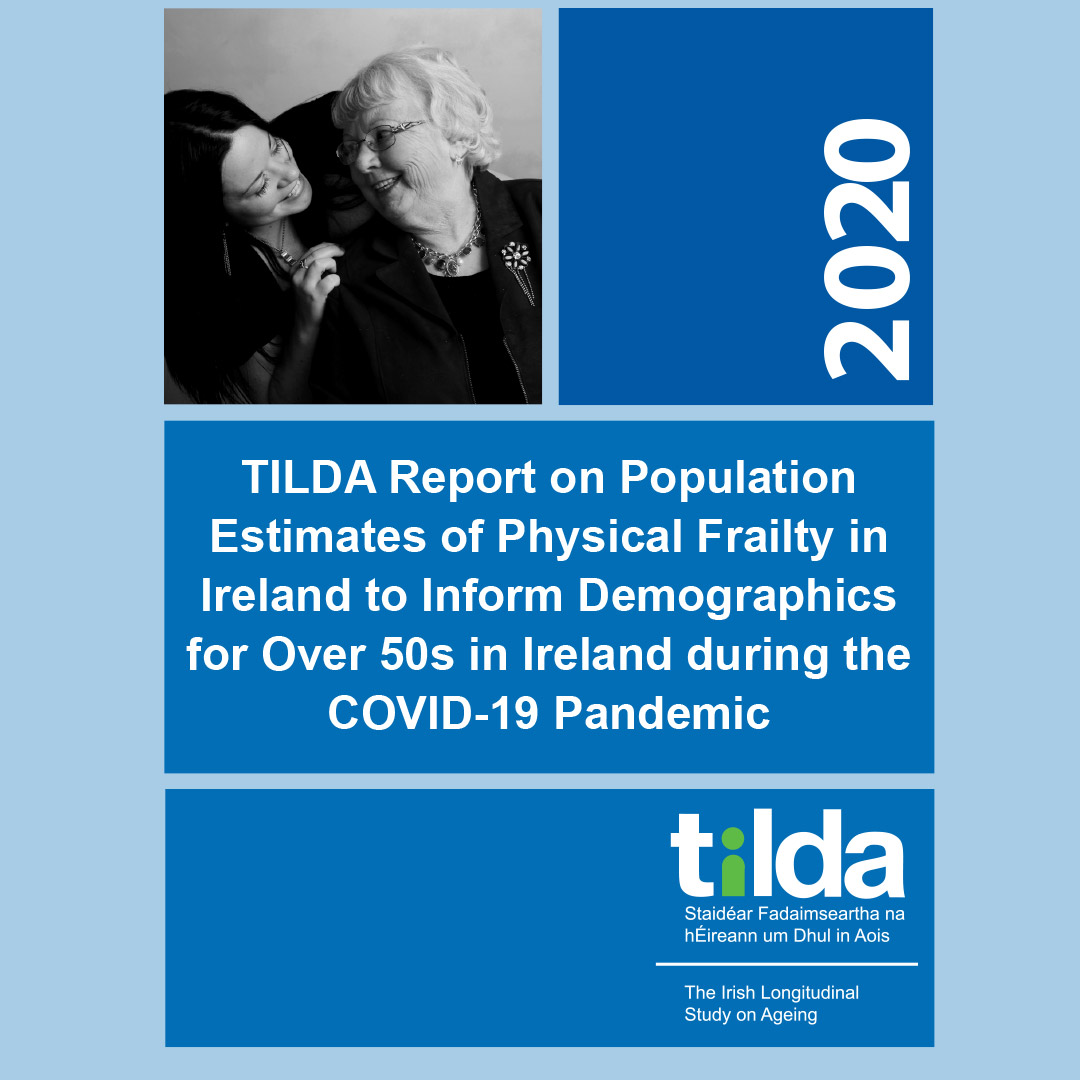This report, produced by the research team at TILDA, discusses the impact of COVID-19 on frailty among older adults in Ireland, with a particular focus on the prevalence of frailty due to the pandemic’s effects on healthcare access, social isolation, and mental health. The report provides statistics regarding population estimates of adults aged over 55, physical frailty estimates by age sex, and county, physical frailty and living alone by age and physical frailty by informal care and formal community supports.
Key findings from the report include that physical frailty is prevalent at 1 in 9 adults aged 55+ years in the Republic of Ireland and almost 1 in 5 adults aged 70+ years are living with frailty. Additionally, there are more women than men living with frailty. Of those living with frailty in Ireland, 56.2% aged 55+ years and 54.7% aged 70+ years are female. Among those 70+, frailty as a proportion of the total population of Ireland was highest in Dublin (4.2%), Cork (3.2%), Limerick (1.2%) and Wexford (0.9%). For those over 70 years and living with frailty, the risks of contracting the infection and subsequent admission to hospital, critical/intensive care and risk of death are even greater. The data presented in this report also suggest that there is significant unmet need in relation to people living alone with frailty and the provision of informal and formal care supports in the community. The report highlights the importance of addressing frailty as a public health concern during and after the pandemic, emphasising the need for specialised interventions and support services for vulnerable populations. It outlines how frailty is modifiable; it may be delayed, halted and even reversed with timely and appropriate prevention, detection and intervention strategies. Moreover, the report provides recommendations for policymakers and healthcare systems to mitigate the impact of COVID-19 on frail individuals. This includes enhancing remote healthcare delivery, prioritising vaccination, and providing community support.



